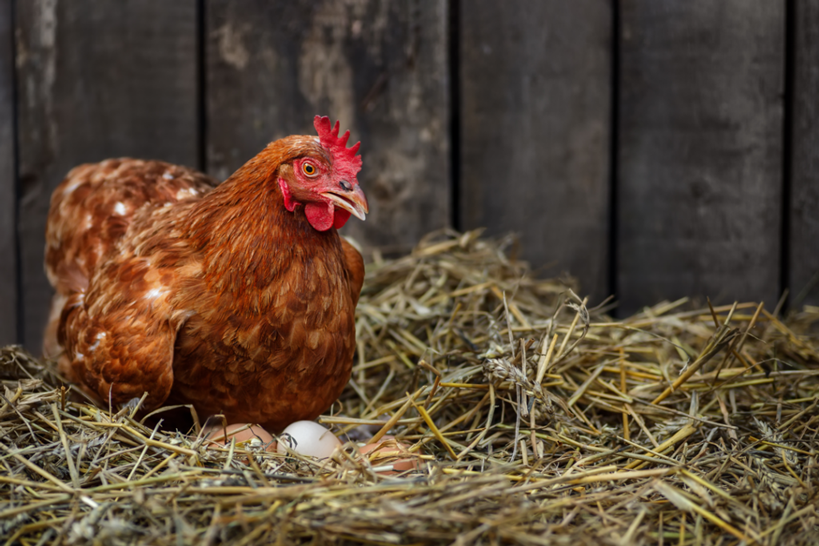Reviewed and Approved by Justin Derington, Director of Auditing Services
Producers and distributors raising livestock or selling animal products into the state of California have several questions about how California Prop 12 affects them. In this article, we provide answers to help you understand the regulations and what you need to do for compliance.
Let’s get started. If you have any questions or are ready to schedule your Prop 12 audit, contact us here.
What is California Prop 12?
California Proposition 12 is a law passed in 2018 that sets minimum space requirements for certain farm animals, including egg-laying hens, breeding pigs, and veal calves. The law also mandates that animal products sold in California must comply with these standards, regardless of origin.
For distributors and producers, compliance with Prop 12 could impact product sourcing and costs, as well as necessitate adjustments in supply chain practices to meet the animal welfare standards.

When Does Prop 12 California Take Effect?
Though the law passed in 2018, enforcement took effect on Jan. 1, 2024. Effective on that date…
- Producers are required to have a valid Certificate of Compliance.
- Distributors are required to have a valid Certificate of Compliance for new registrations and for the purposes of renewal.
The California Department of Food and Agriculture provides guidelines for managing this transition.
What Are California Prop 12 Requirements?
The regulations define the following space requirements for these animal products sold in California:
For a complete list of California Prop 12 requirements, consult our complimentary California Prop 12 Compliance Checklist.
| Animal Type | Housing System Description | Requirement |
| Egg-laying Hens | Multitiered aviaries with access to multiple elevated platforms. | 1 sq. ft. of usable floor space |
| Partially slatted systems with access to elevated flat platforms. | 1 sq. ft. of usable floor space | |
| Single-level all-litter floor systems bedded with litter (limited or no access to elevated platforms). | 1.5 sq. ft. of usable floor space | |
| Other cage-free housing systems with access to vertical space. | 1 sq. ft. of usable floor space | |
| Other cage-free housing systems without access to vertical space. | 1.5 sq. ft. of usable floor space | |
| Breeding Pigs | Enclosure allowing the breeding pig to lie down, stand up, fully extend limbs, and turn around freely. | 24 sq. ft. of usable floor space |
| Veal Calves | Enclosure allowing the calf to lie down, stand up, fully extend limbs, and turn around freely. | 43 sq. ft. of usable floor space |

How Do I Comply with Prop 12 California?
For producers and distributors, compliance with Proposition 12 in California will necessitate reviewing and potentially modifying current housing systems for the affected animals. This may involve infrastructure investment to expand existing spaces or redesign confinement methods.
Beyond your own practices, you’ll also need to scrutinize your supply chain to ensure that any suppliers you work with are also in compliance with these requirements if you’re selling animal products in California.
Given the legal implications and potential for market exclusion for non-compliance, conducting a Prop 12 audit is crucial. An audit can verify that both your practices and those of your suppliers meet the law’s animal welfare standards. This certification can not only safeguard your ability to operate in the California market but also serve as a selling point for ethically conscious consumers.
How Do I Get a California Prop 12 Audit?
Reach out to FSNS Certification & Audit (FSNS C&A). We have accreditation from the California Department of Food and Agriculture (CDFA) to perform Prop 12 audits.
What is the Penalty for Non-Compliance with Prop 12?
Selling products from animals that aren’t kept according to Proposition 12 rules could lead to criminal charges. If found guilty, you could face a fine up to $1,000, spend up to 180 days in county jail, or both.
Do All My Animals Need to Meet Prop 12?
No. You can operate what the State of California defines as a “split operation“. This means that your farm or your supplier’s farm raises animals or products that are both in conformance with Prop 12 confinement requirements and those that are not for distribution to other states or markets.
If you run a split operation, bear in mind that Prop 12 California requires you to keep documentation to verify identification, segregation, distribution, and handling to prevent comingling with non-compliant product.
Our California Prop 12 Compliance Audit Checklist helps you understand and ensure you meet the requirements.

What Records Do I Need to Maintain
California Prop 12 compliance requires meticulous recordkeeping. We provide the requirements below:
California Prop 12 Recordkeeping Requirements for Egg-Laying Hens
- Records are required to be available for no less than two years beyond their creation.
- Records show the size of the farm.
- Records show the quantity of egg-laying hens and shell eggs produced or processed from each facility or farm unit in the certified operation.
- Records show the number of egg-laying hen enclosures for each facility or farm unit, the size and usable floorspace of each enclosure, and the maximum stocking density for each enclosure.
- Records show the quantity of egg-laying hens in inventory, number of hens kept in each enclosure, and the dates of stocking, harvest and production.
- Records of all covered animals and covered product transactions for the preceding two-year period must be available. The records for the shell eggs must indicate date, quantity, identity of the buyer and seller and the address where physical possession of covered product took place for each transaction.
- Records pertaining to the production, processing, handling, packaging, storage, transportation, or sale of egg-laying hens and shell eggs sold, intended for sale in California or identified or represented as compliant with requirements must be available for the preceding two-year period.
- Records must be maintained in sufficient detail to document that egg-laying hens were confined in compliance with requirements as detailed in the California Prop 12 regulations.
- If the operation is a split operation, records must sufficiently demonstrate the identification, segregation, distribution, and handling of compliant egg-laying hens and covered product to prevent commingling with any non-compliant egg-laying hens and covered product.
- If egg-laying hens are kept in non-compliant enclosures for animal husbandry purposes, then records must be maintained by an egg producer in sufficient detail to document that egg-laying hens are not kept in non-compliant enclosures for longer than six (6) hours in any 24-hour period, and no more than 24 hours total in any 30-day period.
- If egg-laying hens are kept in non-compliant enclosures for individual treatment, then records must be maintained by a producer in sufficient detail to document individual treatment records for the egg-laying hen, under direction of the herd veterinarian with a current Veterinary-Client-Patient-Relationship (VCPR).
- All information submitted with the application for certification must be accurate.
California Prop 12 Recordkeeping Requirements for Breeding Pigs
- Records are required to be available for no less than two years beyond their creation.
- Records show the size of the farm.
- Records show the quantity of breeding pigs produced or processed from each facility or farm unity in the certified operation, as well as the immediate offspring produced from each facility or farm unit in the operation.
- Records show the number of breeding pig enclosures for each facility or farm unit, the size and usable floorspace of each enclosure.
- Records show the quantity of breeding pigs in inventory, number of breeding pigs kept in each enclosure, and the dates of stocking, harvest and production.
- Records of animal transactions for the preceding two-year period must be available, including the date, quantity, identity of buyer and seller, and address where physical possession took place for each transaction.
- Records for the preceding two-year period pertaining to the production, processing, handling, packaging, storage, transportation, or sale of breeding pigs or their immediate offspring sold, intended for sale in California or identified or represented as compliant with requirements.
- Records must be maintained in sufficient detail to document that breeding pigs were confined in compliance with requirements as detailed in the California Prop 12 regulations.
- If the operation is a split operation, records and standard operating procedures must sufficiently demonstrate the identification, segregation, distribution, and handling of compliant breeding pigs and their immediate offspring to prevent commingling with any non-compliant breeding pigs and their immediate offspring.
- If breeding pigs are kept in non-compliant enclosures for animal husbandry purposes, then records must be maintained by a pork producer in sufficient detail to document that breeding pigs are not kept in non-compliant enclosures for longer than six (6) hours in any 24-hour period, and no more than 24 hours total in any 30-day period.
- If breeding pigs are kept in non-compliant enclosures for individual treatment, then treatment records must be maintained by a pork producer in sufficient detail to document individual treatment plans for the breeding pigs, under direction of the herd veterinarian with a current Veterinary-Client-Patient-Relationship (VCPR).
- If breeding pigs are kept in non-compliant enclosures for farrowing, then records must be maintained by a pork producer documenting that breeding pigs are kept in non-compliant enclosures no longer than five (5) days prior to expected date of giving birth and while nursing piglets.
- All information submitted with the application for certification must be accurate.
California Prop 12 Recordkeeping Requirements for Veal Calves
- Records are required to be available for no less than two years beyond their creation.
- Records show the size of the farm.
- Records show the quantity of veal calves produced or processed from each facility or farm unity in the certified operation.
- Records show the number of veal calves enclosures for each facility or farm unit, the size and usable floorspace of each enclosure, and the maximum stocking density for each enclosure.
- Records show the quantity of veal calves in inventory, number of veal calves kept in each enclosure, and the dates of stocking, harvest and production.
- Records of veal calf transactions for the preceding two-year period must be available. Records must include date, quantity, identity of buyer and seller, and address where physical possession took place for each transaction.
- Records pertaining to the production, processing, handling, packaging, storage, transportation, or sale of veal calves sold, intended for sale in California or identified or represented as compliant with requirements.
- Records must be maintained in sufficient detail to document that veal calves were confined in compliance with requirements as detailed in the California Prop 12 regulations.
- If the operation is a split operation, records must sufficiently demonstrate the identification, segregation, distribution, and handling of compliant veal calves to prevent commingling with any non-compliant veal calves.
- If veal calves are kept in non-compliant enclosures for animal husbandry purposes, then records must be maintained by a veal producer in sufficient detail to document that veal calves are not kept in non-compliant enclosures for longer than six (6) hours in any 24-hour period, and no more than 24 hours total in any 30-day period.
- If veal calves are kept in non-compliant enclosures for individual treatment, then records must be maintained by a veal producer in sufficient detail to document individual treatment records for the veal calves, under direction of the herd veterinarian with a current Veterinary-Client-Patient-Relationship (VCPR).
- All information submitted with the application for certification must be accurate.
California Prop 12 Recordkeeping Requirements for Distributors
- Records shall be sufficient for purposes of an audit trail. All records must be maintained for two years from their creation.
- Records shall document in a traceable manner that covered product being distributed for commercial sale into or within California originate from producers (egg producer, veal producer, or pork producer) that are in compliance with all species-specific requirements.
- Records must indicate the date, quantity, identity of the buyer and seller, for each transaction of covered product.
- For each transaction, records from the preceding two-year period must include address of the location where the distributor takes physical possession of covered product.
- Records demonstrate in sufficient detail the production, processing, identification, source, supplier, transfer of ownership, transportation, storage, segregation, handling, packaging, distribution, and sale of covered products.
- Inspection and audit the required records may be conducted by the certifying agent by on-site inspection at the distributor location, or by using email, phone, teleconference, or any combination thereof, at the discretion of the certifying agent.
- If a split operation, include documentation to demonstrate the identification, segregation, distribution, and handling of covered product to prevent commingling with non-compliant covered product.
What Shipping Documents Do I Need to Meet Prop 12 Requirements?
Proposition 12 California regulations require properly completed shipping documents. Here are the requirements:
- All documents of title and shipping manifests for compliant covered product transported into and within California for commercial sale shall include the appropriate statement:
- “Egg CA Prop 12 Compliant”
- “Pork CA Prop 12 Compliant”
- “Veal CA Prop 12 Compliant”
- No evidence of labeling, identification, marking, advertising, or otherwise representation of covered product as compliant for commercial sale in California unless the covered product was produced in compliance with all statutory and regulatory requirements.
- If a split operation, distributing compliant and non-compliant covered product all documents of title and shipping manifests of covered product that was not produced in compliance with requirements and enters the state for the purposes of transshipment, export, donation, or sale to federal agencies or on tribal lands and is not destined for commercial sale in California shall be marked with the statement “For Export”, “For Transshipment”, or “Not CA Prop 12 Compliant”. The statement shall be legible and plainly printed or stamped.
Questions? Ready to Schedule a California Prop 12 Audit?
FSNS Certification & Audit is accredited by the California Department of Food & Agriculture (CDFA) to perform Prop 12 audits. Our team is happy to answer your questions and work with you on your path to Prop 12 certification.
Reach out and we’ll be glad to answer your questions.




